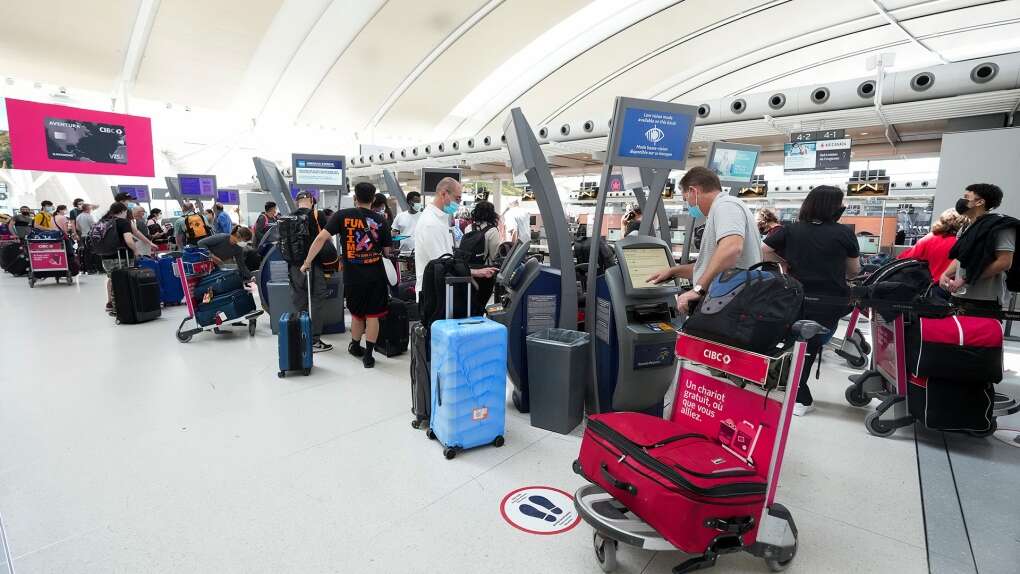Over the years, students have always believed that having an opportunity to study in these top schools like Virginia Tech is likened to a camel passing through the eye of a needle. Honestly, it’s not like that. Basically, Virginia Tech Acceptance Rate and Admission Requirements are so visible and at the level that students can easily smash.
Virginia Tech believes that providing this population the opportunity to demonstrate proficiency in their college preparatory curriculum through the above-listed documentation will be beneficial to both the student and the university.
Virginia Tech attracts highly competitive students nationwide and from over 100 countries. Therefore, in this article, you’ll get a deep insight into the Virginia Tech acceptance rate, admissions rate, and programs.
Below is an overview of what to expect from this article.
Table of contents
- Why Study in Virginia Tech?
- Virginia Tech Acceptance Rate
- What is Financial Aid at Virginia Tech Like?
- What is Virginia Tech Academic?
- What is Virginia Tech Student Life like?
- What are Virginia Tech Requirements for Admission?
- Virginia Tech Admission Process
- What is Virginia Tech Undergraduate Admission Like?
- What is Virginia Tech Transfer Acceptance Rate?
Why Study in Virginia Tech?
Founded in 1872, Virginia Tech goes beyond the boundaries of knowledge by adopting a practical, multidisciplinary approach to preparing students to be leaders and solve problems.
That is to say, as the complete Commonwealth University and leading research institution, Virginia Tech offers around 280 undergraduate and graduate programs to more than 36,000 students and manages a research portfolio of over $ 531 million.
Above all, the university does its job as a land-grant institution by promoting a collaborative environment that integrates technology in all disciplines so that the Virginia Tech community can serve as a force for positive change in society, the country, and the world.
Furthermore, through experiential learning, future-focused research and inclusive and vibrant culture, Virginia Tech strive to comply with the Ut Prosim logo (what can I do).
Virginia Tech has a 2,600-acre campus, educational and research facilities throughout the state, a study site abroad in Switzerland, and an agricultural research farm on 1,800 acres near the main campus.
However, the campus itself is located in the city of Blacksburg in the county of Montgomery in the New River Valley and 38 miles southwest of Roanoke.
The Virginia Tech ranks #79 among the National Universities. Also, it is ranked #13 in Best Undergraduate Engineering Programs
Other International Rankings:
- #74 in National Universities
- #45 in Best Colleges for Veterans (tie)
- #132 in Best Value Schools
- #42 in Most Innovative Schools (tie)
- #322 in Top Performers on Social Mobility (tie)
- #30 in Top Public Schools
Virginia Tech Acceptance Rate
During the 2017-18 admissions cycle, Virginia Tech had an acceptance rate of 62%. This means that for every 100 students who applied, 62 students were admitted, making Virginia Tech’s admissions process somewhat competitive.
Consequently, Virginia Tech accepts 20,709 and enrolls about 27,811 out of the 31,936 students that applied for admission, irrespective of how competitive the admissions process may be.
In other words, the acceptance rate at Virginia Tech is 64.8%. For every 100 applicants, 65 are admitted.
What is Financial Aid at Virginia Tech Like?
At Virginia Tech, 39 percent of full-time undergraduate students receive financial aid based on need, and the average scholarship is $ 7,432.
However, paying for university doesn’t have to be difficult or destructive. Go to the Paying for College Knowledge Center for tips on collecting money and reducing costs, or use the US 529 news search tool to choose the best university investment account with your tax benefits.
What is Virginia Tech Academic?
Virginia Tech’s student-teacher ratio is 14: 1, and the school has 27.4 percent of its classes with less than 20 students.
However, Virginia Tech’s most popular majors include Engineering; Business, Management, Marketing, and Related Support Services; Family and Consumer Sciences / Humanities; Biological and Biomedical and Social Sciences.
Hence, the average retention rate for new students, an indicator of student satisfaction, is 93 percent.
Moreso, the degrees offered by this school include Associate, Bachelors Degree, masters degree, and Post-master’s Degree, Doctorate – Professional Practice, and Doctorate – Research / Scholarship.
Virginia Tech majors in many courses. Some of the school’s more interesting majors are:
- Agricultural Economics
- Business/Managerial Economics
- Computer Science
- Dairy Science
- Engineering Mechanics
- Family and Consumer Sciences
- German Language and Literature
- Horticultural Science
- Industrial and Product Design
- Landscape Architecture
- Meteorology
- Ocean Engineering
- Philosophy
- Real Estate
- Sociology
- Speech Communication and Rhetoric
What is Virginia Tech Student Life like?
Virginia Tech has a total undergraduate enrollment of 27,811, with a gender distribution of 57 percent male students and 43 percent female students.
At this school, 33 percent of the students live in college-owned, -operated or -affiliated housing and 67 percent live off-campus. In sports, Virginia Tech is part of the NCAA I
- Total enrollment 34,850
- Undergraduate enrollment 27,811
- Graduate enrollment 7,039
Here’s a sampling of Virginia Tech’s student activities:
- 101 Youtube and Social Media Club
- AdvanceVT
- Appalachia Collective
- Bevlee Watford Society
- 2Loud at Virginia Tech
- Animal Hope Alliance
- Block and Bridle Club
- Drone Racing Team
- Ballroom Dance at Virginia Tech
- College Diabetes Network
- Culture Spark
- Association for Operations Management
- Board Game Club
- Ask Big Questions
- Agronomy Club at Virginia Tech
Looking for an online school to study in Virginia? Here are best online schools in Virginia where you can study.
What are Virginia Tech Requirements for Admission?
Before you can be admitted to Virginia Tech, there are requirements that you must meet. But here, we will focus on a few which are vital. They are
- GPA requirements
- SAT and ACT requirements
- Application requirements
First, let’s start with GPA Requirements.
You will agree with me that many schools set minimum GPA requirements, but this is just the first thing to do to avoid being rejected immediately.
Hence, with a 4.04 GPA, Virginia Tech assumes that you are at the top of your class. You need A in almost all classes to be able to compete with other applicants.
In addition, difficult lessons, AP or IB courses must prove that the academic level at the university level is very easy.
Meanwhile, if you are currently a third or fourth-year student, changing the GPA in time for student applications is difficult.
If your GPA is 4.04 or lower than the school average, you need a higher SAT or ACT value to compensate. This way you can effectively compete against other applicants with a higher average than you.
Each school requires an application that contains the basic core elements: High School Text and GPA, application form and other basic information.
Many schools, as described above, also require SAT and ACT scores, letters of recommendation, application articles, and interviews.
Schools have different SAT and ACT Requirements just like Virginia Tech. To start with, the average SAT score composite at Virginia Tech is 1290 on the 1600 SAT scale.
This score makes Virginia Tech Competitive for SAT test scores. Below is the SAT scores by section:
| Section | Average | 25th Percentile | 75th Percentile |
| Math | 650 | 590 | 710 |
| Reading + Writing | 640 | 590 | 680 |
| Composite | 1290 | 1180 | 1390 |
The average ACT score at Virginia Tech is 28. This score makes Virginia Tech Moderately Competitive for ACT scores.
The 25th percentile ACT score is 25, and the 75th percentile ACT score is 31.
Even though Virginia Tech likely says they have no minimum ACT requirement, if you apply with a 25 or below, you’ll have a harder time getting in unless you have something else impressive in your application.
Virginia Tech Admission Process
Virginia Tech has a selective admission process that admits up to two-thirds of the applicants into the school.
Note: If you have high SAT / ACT and GPA scores, you will have a good chance of being accepted.
Moreover, Virginia Tech has a comprehensive admission process that includes other factors beyond test scores. Well, a well-written application with a recommendation can go a long way.
However, the university is looking for candidates with at least four years in English, three years in mathematics, two years in laboratory science, two years of social studies, and three years in additional academic subjects (a foreign language is recommended).
In addition, applicants must bear in mind that additional conditions for admission to specific positions may exist.
Furthermore, Virginia Tech also studies factors such as race, first-generation condition, leadership, service, and inherited status in the application review process.
We will also discuss the Virginia tech transfer acceptance rate below.
See also: 15 Top PA Schools With High Acceptance Rates
What is Virginia Tech Undergraduate Admission Like?
All students seeking a four-year degree at Virginia Tech University must submit their application through the University Alliance. This includes international and national students and transfer.
Note, this is a third-party app accepted by hundreds of universities across the country. You can start creating your profile at any time, and this profile will help you improve the application process later.
To be a first-year applicant to Virginia Tech, you must complete:
- 18 units of high-school coursework
- 4 units of English
- 3 units of math (includes algebra I, geometry, and algebra II)
- 2 units of laboratory science (chosen from biology, chemistry or physics)
- 2 units of social science (one must be history)
- 3 additional academic units (foreign language is highly recommended)
- 4 elective units
What is Virginia Tech Transfer Acceptance Rate?
The most important factors that are accepted for Virginia Tech Transfer students are:
- First, Completion or progression toward completion of prerequisite courses for your planned program. Create a competitive calendar by following the transfer acceptance roadmap for the major you intend to apply to.
- Note: transportation requests are no longer accepted for old architecture or industrial design.
- Hence, the overall average in all undergraduate courses with a special focus on performance in the courses related to your planned program, as well as your recent work.
- Furthermore, although the panel considers applicants with a GPA of 2.5 (on a 4.0 scale), most competitive applicants will have a GPA of 3.0 or higher. (In disciplines where applications exceed the available space, the average competitive score may be higher.)
- Stay up to date in your current or newest organization.
By the time you graduate, students must meet the requirements for language study.
See also: Grove City College Tuition: Admission, Scholarship, & Acceptance Rate
Sources
- https://www.thoughtco.com/virginia-tech-admissions-787260
- https://www.collegesimply.com/colleges/virginia/virginia-polytechnic-institute-and-state-university/admission/
- https://www.usnews.com/best-colleges/virginia-tech-3754
- https://www.niche.com/colleges/virginia-tech/admissions/
Recommendations
- University of Miami Acceptance Rate 2024
- The University of North Carolina at Chapel Hill (UNC) Acceptance Rate in 2024 | Admission Requirement
- University Of Wisconsin Acceptance Rate in 2024
- University of Central Florida (UCF) Acceptance Rate | 2024
- 20 Colleges in California With High Acceptance Rates in 2024





